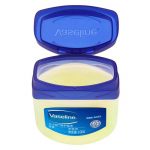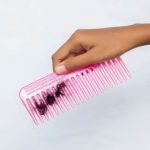
Should You Condition Your Hair Every Day? How Often?
Are you unsure if using conditioner after every wash is necessary? Let’s face it: adding conditioner to your hair care routine adds another step that requires time.
Additionally, depending on the type of hair you have, you could be concerned that it would make your hair oily or weigh it down. However, conditioning your hair frequently – at least every time you wash it – is actually crucial to maintaining your hair’s long-term health, strength, and shine. This goes beyond the instant beauty boost your hair receives. However, should you condition your hair every day?
Table of Contents
What Is A Conditioner?
Your hair will feel hydrated after using conditioner. It’s usually made up of cationic surfactants, which help to smooth your hair, as well as emollients, oils, and sometimes silicones.
Silicones coat your hair to help to lock out humidity, reduce frizz, and make your hair shiny.
Conditioner has three main uses:
- replenishing some of the moisture that shampooing strips away
- moisturizing hair after chemical treatments, like coloring and straightening
- helping hair recover from heat damage, including damage from hair dryers and curling irons.
Should You Condition Your Hair Everyday?
A healthy scalp is the aim of a hair care routine. Daily shampooing can deplete the moisture in the hair, so it needs conditioning or it will start producing too much sebum to prevent dryness. Every day, using shampoo results in imbalances. But if you use a conditioner every day, it can’t be said the same. Focusing on your hair’s appearance is the key. Do you use the right amount, the wrong amount, or just the right amount? Here’s what to look out for:
How Can You Determine If You Are Under Condition?
You should condition your hair more frequently if it becomes dry and brittle, if it tangles more frequently and you notice an increase in frizz, or if it becomes dull and easily breaks due to a lack of elasticity.
Signs That You Are Over-conditioning Your Hair
What occurs when the conditioner is applied excessively? Your hair gets into hygral fatigue and your locks will become greasy. You’ll notice that they lose their body and volume, and the hair no longer bounces. Even if your hair is silky and soft, it will still appear lifeless and limp. Its texture could become overly shiny, making styling it more difficult because it won’t maintain the desired shape.
How Often Should You Condition Your Hair?
If you spend more time in the sun, if you have damaged hair, if you’ve had bleaching or coloring done, if you use heat tools or swim regularly and chlorine touches your hair, you need a boost in hydration.
Read about: Can You Bleach Hair Twice In One Day? No Way! – Muse Hair Care
What Transpires If Conditioner Is Not Used On Your Hair?
Beauty experts and hair care specialists recommend using a conditioner every time you shampoo your hair to minimize wear and tear. The cuticle will remain open if no conditioner is applied, making the hair vulnerable to damage. Think of the cuticles as having teeny tiny holes. Chemicals, heat, moisture, chlorine, sunlight, and coloring can enter through those holes more freely and cause damage.

Hair Conditioning And Its Importance To Your Scalp
You can simply wash your hair with some conditioner diluted in water on days when you skip shampooing. Just make sure to thoroughly rinse it off. Additionally, experts advise applying conditioner to your scalp prior to receiving chemical treatments like coloring. By doing this, you separate your scalp from the corrosive substances and create a barrier of protection.
The Connection Between Conditioner & Hair Damage
The same AAD (American Academy of Dermatology Association) experts emphasize the link between conditioners and preventing hair damage. After each wash, condition your hair to prevent split ends and breakage, lessen tangles, and make it easier to manage. According to the degree of hair damage, they also recommend a different conditioning method.
How To Apply Conditioner?
The way you apply conditioner can affect how well it works. It can also significantly alter the overall appearance of your hair.
While it may be tempting to use conditioner all over your hair, people with fine or oily hair should refrain from doing so. Your hair might appear heavy as a result.
Instead, concentrate on conditioning just the ends of your hair. Over time, your ends become more porous and drier than the rest of your hair due to damage.
On the other hand, extremely coarse or curly hair typically benefits from the all-over conditioner. Co-washing, or using conditioner in place of shampoo, can be effective for some people with curly hair.
Even though it occasionally results in the buildup, it’s a kinder way to clean. In that case, doing an apple cider vinegar rinse or clarifying treatment every couple of weeks should help.
Conclusion
Should you condition your hair every day? The solution to this is without a doubt that you should condition your hair after each wash.
We rid our hair of pollutants and filth when we wash it. While shampoo cleanses the hair, sealing the cuticle with conditioner allows nutrients to be locked in. Together, they produce hair that is moisturized, stronger, and less prone to breaking.
Think of conditioning your hair as you would an exercise program where you hope to see changes in the way your body looks. Even though you’ll see some immediate advantages after only one session, or in this case, one wash, you’ll see improved outcomes as you continue to practice (or condition). Your hair will gradually improve in beauty and health after several treatments.






